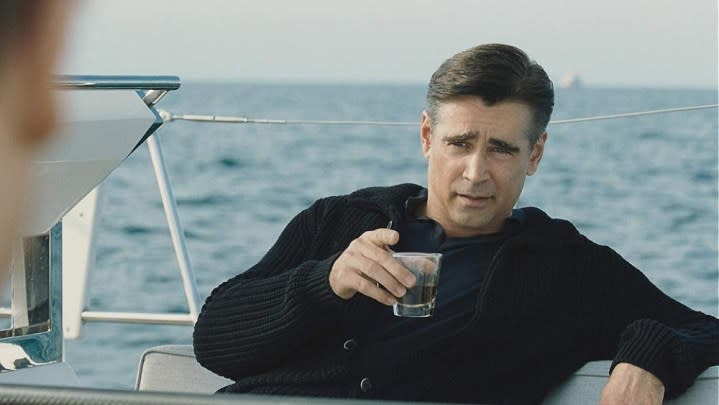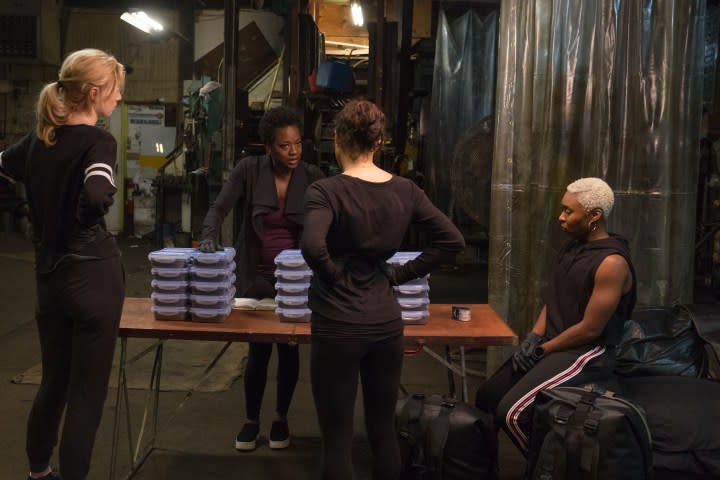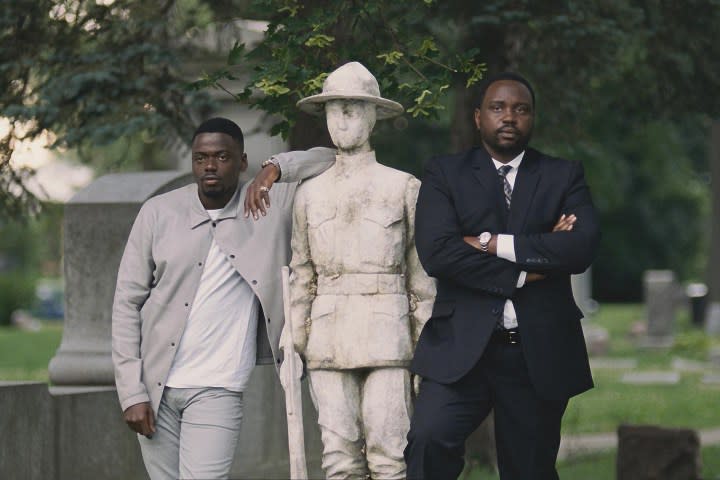You probably didn’t watch the most underrated crime thriller of the 2010s. Here’s why you should see it now

- Oops!Something went wrong.Please try again later.
- Oops!Something went wrong.Please try again later.
- Oops!Something went wrong.Please try again later.
- Oops!Something went wrong.Please try again later.
In 2018, one of the greatest directors alive made a surprising, creatively inspired left turn. Just five years after he won Best Picture for 12 Years a Slave, Steve McQueen released his fourth feature directorial effort, Widows. Co-written by Gone Girl scribe Gillian Flynn, the crime thriller marked McQueen’s first foray into the kind of genre filmmaking he’d long avoided. Not only was it an unexpected follow-up to an austere award winner like 12 Years a Slave, but it felt like a purposeful change of pace for a director whose previous credits also included decidedly dour dramas like Hunger and Shame.
Many viewed the decision with skepticism: Was McQueen really the right fit for a pulpy thriller about a group of widows who decide to pick up where their deceased criminal husbands left off? When it was eventually released, Widows was welcomed with little fanfare. Some seemed to regard it as an intriguing, but ultimately minor experiment on McQueen’s part, and while it wasn’t a box office bomb, casual moviegoers didn’t run out in droves to see it, either.
Five years later, Widows’ merits are obvious, as is its place as one of the most engaging and well-constructed crime thrillers of its decade. The film is one of McQueen’s most visually dynamic, narratively precise efforts, and it features not just one, but two genuinely astonishing performances, one from its titanic lead, Viola Davis, and the other from her breakout co-star, The Crown‘s Elizabeth Debicki.
Widows begins with a bang and doesn’t let up

Widows opens in startling fashion. Through a series of quick vignettes, the film establishes the relationships between its central women and their husbands. We see the rituals that Davis’ Veronica and her husband, Harry (Liam Neeson), would make time for before one of the latter’s routine heists. We get a glimpse into the abusive relationship between Debicki’s Alice and her husband, Florek (Jon Bernthal), one of Harry’s partners. Similar moments offer glimpses into the strained marriages between Carlos (The Lincoln Lawyer‘s Manuel Garcia-Rulfo) and Jimmy (Coburn Goss), two of Harry’s other co-conspirators, and their respective wives, Linda (Michelle Rodriguez) and Amanda (Carrie Coon). McQueen cuts back and forth from these instances of plaintive domesticity to a heist gone wrong, which climaxes with Harry, Carlos, Jimmy, and Florek all dying in a fiery explosion.
This opening montage establishes not only the criminal world of Widows, but also its somber tone, propulsive pace, and contradictory nature. The film is simultaneously fractured and fluid. McQueen and Flynn’s screenplay adopts an elliptical, fragmented style that reflects the emotionally confused, volatile headspaces of its widowed leads — namely, Davis’ Veronica and Debicki’s Alice. Over the course of its runtime, hard-hitting truths are revealed via jarring cuts. In one moment, McQueen uses the literal opening of a door as the intro to a brutally succinct flashback.
At the same time, the director packs Widows to the brim with long takes that span entire rooms and frequently circle its characters. In doing so, he creates an exciting contrast between the film’s narrative structure and its visual language. As pulpy as it is, Widows is an intimate, emotionally intense film, and by making his camera so active throughout it, McQueen ensures that every scene feels fittingly dangerous and unpredictable.
Widows has a great cast
That volatility is reflected in the film’s best performances. Davis and Debicki shine as two quiet, reserved women desperate to find some kind of sure footing again. Meanwhile, despite playing the film’s most unhinged, violent character, Daniel Kaluuya brings an unsettling confidence and sense of calm to his performance as the brother and head enforcer of Jamal Manning (Causeway‘s Brian Tyree Henry), a low-level crime boss and aspiring politician.

Widows uses its stylistic flourishes to visually emphasize its ideas about the roles that inequality, privilege, cruelty, and kindness have to play not only in one’s relationships, but in the actual construction and politics of the world. As a film about a group of women forced to pick up the pieces of their husbands’ failures, many of Widows’ political ideas are baked into its very premise, but the film uses the relationship between Davis’ closed-off Veronica and Debicki’s unmoored Alice to explore the importance of both tenderness and emotional vulnerability.
An action movie with a message
Behind the camera, McQueen uses the film’s Chicago setting to make its points clear. In one instance, he stages a horrifying police shooting near a wall covered in Barack Obama’s 2008 presidential campaign posters. During a different scene, he locks his camera onto the hood of a car as it drives from a low-income neighborhood to an affluent Chicago suburb within just two minutes, all while its passenger, Jack Mulligan (Colin Farrell), spews out racist clichés about the very constituents he’s campaigning to represent.
By shooting the scene how he does, McQueen makes the gap between Jack, a clear product of nepotism, and the people he claims to care about hauntingly clear. It’s hard, in fact, to think of a moment in a recent blockbuster that has as effectively laid out the disconnect between America’s citizens and its politicians.
Widows isn’t like most modern blockbusters, though. It’s just as thrilling and explosive as you’d want a crime thriller like it to be, but it’s also richer and more emotionally and intellectually engaging than most mainstream Hollywood films of the past five years. It shouldn’t, in other words, be nearly as obscure or underrated as it is. There simply aren’t many other contemporary American thrillers like it.
Widows is streaming now on Freevee.

